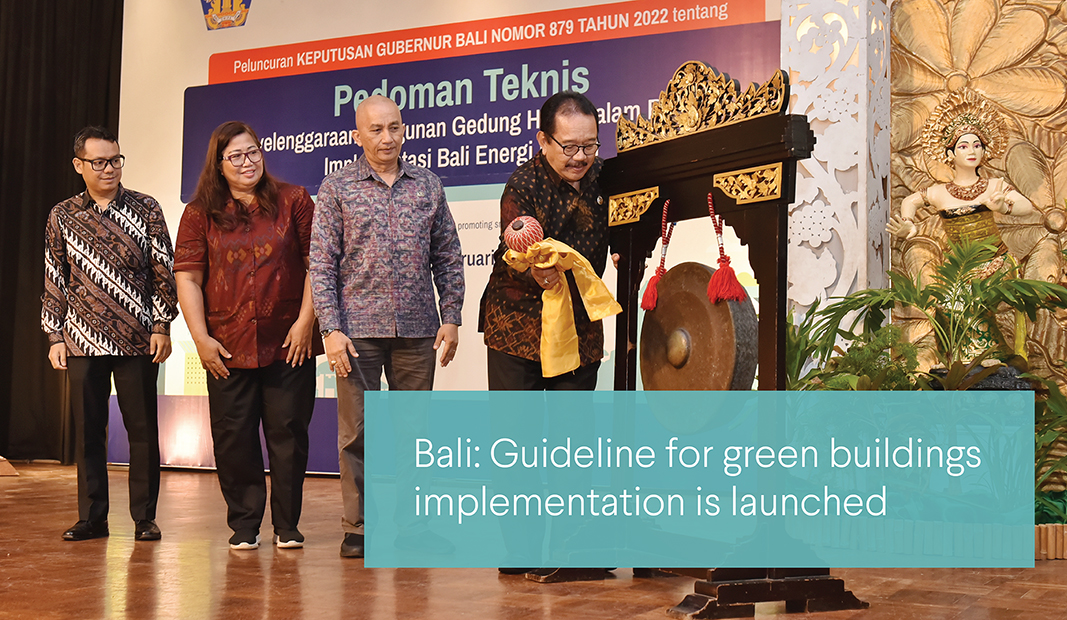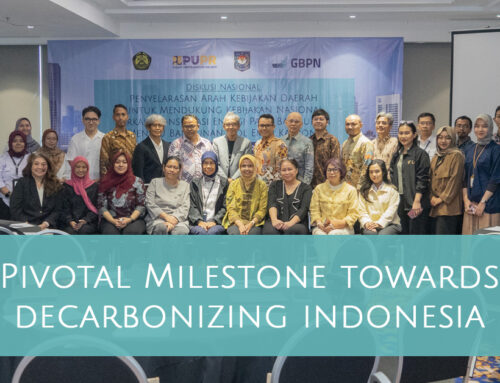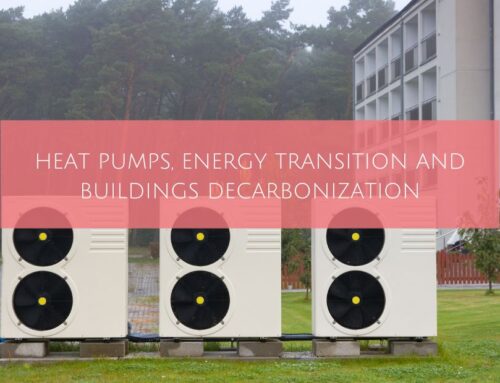The progressive approach of Bali Province to implementing the Bali Clean Energy Governor Regulation is expected to halve carbon emissions in buildings sector
Yeni Indra, GBPN’s Sub-national Strategic Projects Lead for Indonesia
The Bali Provincial Government has issued technical guidelines to support the implementation of the Bali Clean Energy Governor Regulation. The move aims to reduce buildings carbon emissions by 50% from business as usual.
Bali Province is the first in Indonesia to initiate such energy conservation efforts as part of implementing clean energy policies at the provincial level.

I Wayan Koster, Bali Governer
The Technical Guidelines for Green Building Construction were launched through the Bali Governor’s Decree as part of the efforts to support the national agenda of achieving net-zero emissions by 2060 through the building sector.
The guidelines were developed in collaboration with GBPN and the Center of Excellence Community Based Renewable Energy (CORE) Udayana University.
According to Yeni Indra, GBPN’s Sub-national Strategic Projects Lead for Indonesia, the Technical Guidelines for Building Construction aim to provide real solutions to generate efficient electricity and water resources.
“These savings will be made through improved building design and the application of renewable energy, including Solar Power Plants (PLTS) on building roofs,” she said.
“The Bali Provincial Government expects that the implementation of these guidelines will reduce electricity usage by up to 50%, water by up to 55%, and reduce CO2 emissions by up to 50% from business as usual.”
The Bali Governor, I Wayan Koster, stated that the issuance of these Technical Guidelines is a concrete step towards carrying out a sustainable energy transition, as a follow-up to the G20 priority agenda.
“The guidelines will also support wider and more measurable application of green buildings in Bali Province, which will be assessed through calculation tools provided in the guidelines”, Mr Koster said.
“The long and extensive works with GBPN and CORE Udayana University in preparing the guidelines is an essential part of the progress we have reached.”
A bottom-up approach to multi-government cooperation

Dr Peter Graham, CEO and Executive Director, GBPN
The Technical Guidelines are a complement to the Minister of Public Works and Housing Regulation on the Performance Assessment of Green Building Construction. They reflect GBPN’s bottom-up approach, which focuses on subnational government leadership while also emphasising the importance of aligning with the national government vision and regulations.
Dr Peter Graham, Executive Director of GBPN, said he hoped the innovative model developed by the Bali Provincial Government could be replicated by other local governments to accelerate the decarbonization of the building sector in Indonesia.
“Local governments play a key role in supporting national climate mitigation and adaptation initiatives,” he said.
“The innovative model initiated by the Bali Provincial Government can be replicated by various other local governments to accelerate the decarbonization of the building sector in Indonesia and we know there is good support within government to see this happen. GBPN is ready to fully support the sustainable building development agenda in Bali Province and across Indonesia.”
This work is expected to orient the building sector in Bali towards greater energy efficiency and increased use of new and renewable energy sources as a step towards achieving Indonesia’s net-zero carbon target in the building sector by 2060.
Share This Story, Choose Your Platform!
Stay in touch with how we’re transforming the buildings sector
GBPN runs innovative building policy reform programs in key regions around the world that aim to tackle the climate emergency by decarbonising the buildings sector. Stay up to date with our newsletter.
Stay in touch with how we’re transforming the buildings sector
GBPN runs innovative building policy reform programs in key regions around the world that aim to tackle the climate emergency by decarbonising the buildings sector. Stay up to date with our newsletter.








